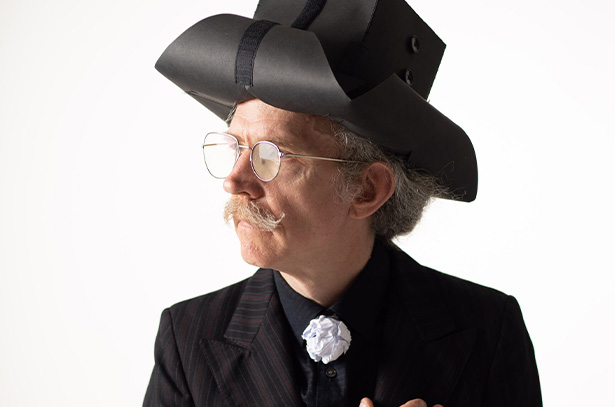
Martin Creed
January 24 - March 7, 2009
Zürich
"My work is a comfort to me, something reliable, like a measuring tape next to the ever-changing world. It’s a helping hand, something to hold on to." Martin Creed Martin Creed’s practice asserts a continuity between artistic gesture and everyday life. At Hauser & Wirth Zürich the ingredients that make up the art on view are simple and idiosyncratic: paint, boxes, masking tape and human excrement. As with all of the artist’s works, “the shape, form, dimensions and materials are determined by actual concrete things”; Creed takes on the unruliness of the world at large, submitting it to a kind of order. Several new paintings will be on display. These are each made using single colours, and consist of horizontal brushmarks that decrease in width as they climb the canvas, resembling steps that go up and down again. The compositions are dictated by the different sized brushes Creed uses, a system that rigorously abdicates from the need for aesthetic decision-making. The same measuring principle is at work in Creed’s box sculptures, assemblages of cardboard containers balanced one on top of the other that progress either from largest to smallest or vice versa. In these, the colour, texture, pattern and shape is ready-made, supplied through the conjunction of the design of the boxes and the artist’s ordering method. These works are democratic: "Small, medium and big: all sizes are equal". A more visceral kind of everyday sculptural pile is encountered by way of film in Work No. 660, which provides an un-glossed reflection on art’s concern with the making of things. Edited from footage he shot in Los Angeles in 2006, Creed’s new 'Shit Film' features a woman defecating in the centre of a blank set before walking off. From the anal preoccupations in medieval depictions of the devil to the extreme performances of the Viennese Actionist Otto Mühl, shit has been used in art for its transgressive value. Piero Manzoni’s Merda d’Artista (1961), Paul McCarthy’s Shit Face Painting (1974), Pier Paolo Pasolini’s notorious The 120 Days of Sodom (1975), and Mike Kelley’s Nostalgic Depiction of the Innocence of Childhood (1990) have all expanded the role of shit as art. As Creed says about this piece: "You find yourself trying to make your work, to produce things to help to you to live. And nearly every day, whether you like it or not, you make shit. It comes from a part of you which you cannot see. It’s the first sculpture. Shit happens, and you cannot ignore it. Working is a matter of trying to come to terms with, to face up to, what comes out of you." Creed was born in Wakefield, England in 1968, and grew up in Glasgow. He lives and works in London. He has exhibited extensively worldwide, and in 2001 won the Tate's Turner Prize for 'The lights going on and off'. This past year has winessed his 'Duveens Commission' Work No. 850, in which an athlete sprinted through Tate Britain’s central galleries every 30 seconds, all day, every day for four and a half months; and a major survey exhibition of his work at Ikon Gallery, Birmingham, which travels to Hiroshima City Museum of Contemporary Art, Japan, Artsonje Center, Seoul, Korea and Museo de Arte de Lima, Peru in 2009. A major monographic book featuring essays by Germaine Greer, Darian Leader, Matthew Higgs and others, will be published by Hauser & Wirth in the new year.
Selected images

Work No. 876
2008

Work No. 660
2007

Work No. 930
2008

Work No. 931
2008

Work No. 932
2008

Work No. 933
2008

Work No. 958
2008

Work No. 963
2008

Work No. 967
2008
Installation views


About the Artist

Martin Creed
‘Creed is a social artist; the true magic of his work lies in the way it interacts with people and places.’
—Jonathan Jones, ‘Martin Creed’s stairway to heaven,’ in The Guardian, London, UK, 1 August 2011, ill. (on Work No. 1059)
Current Exhibitions
1 / 10









